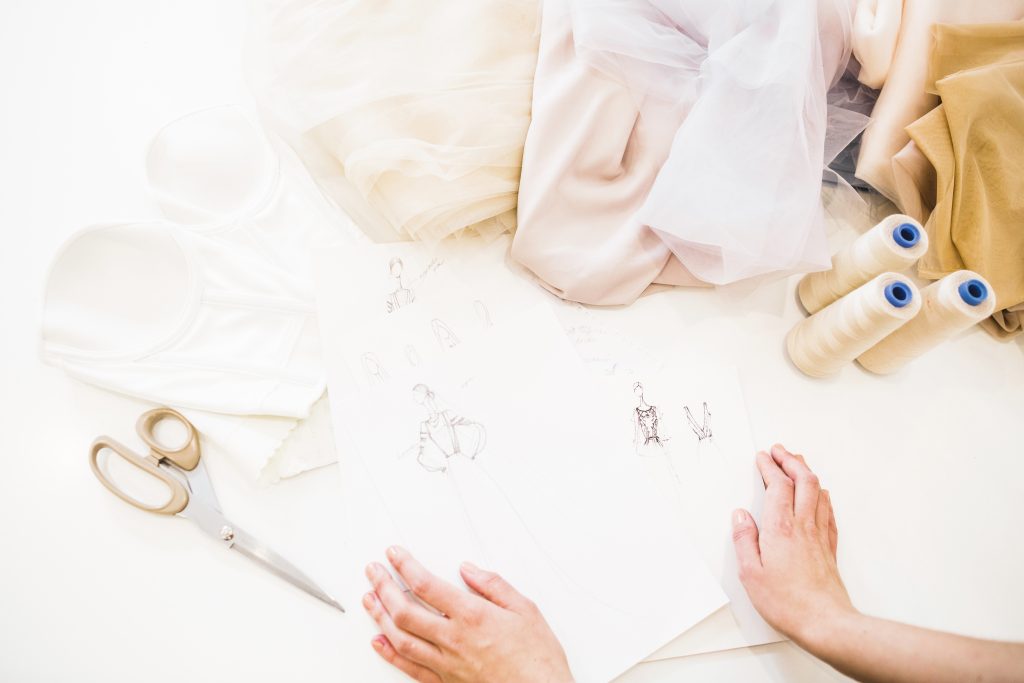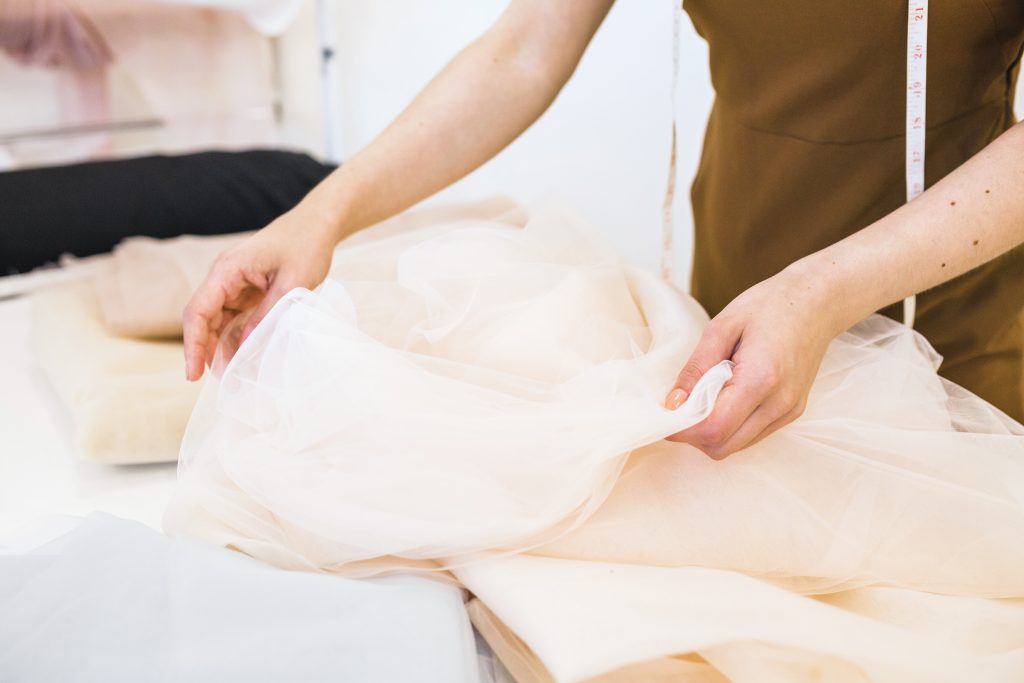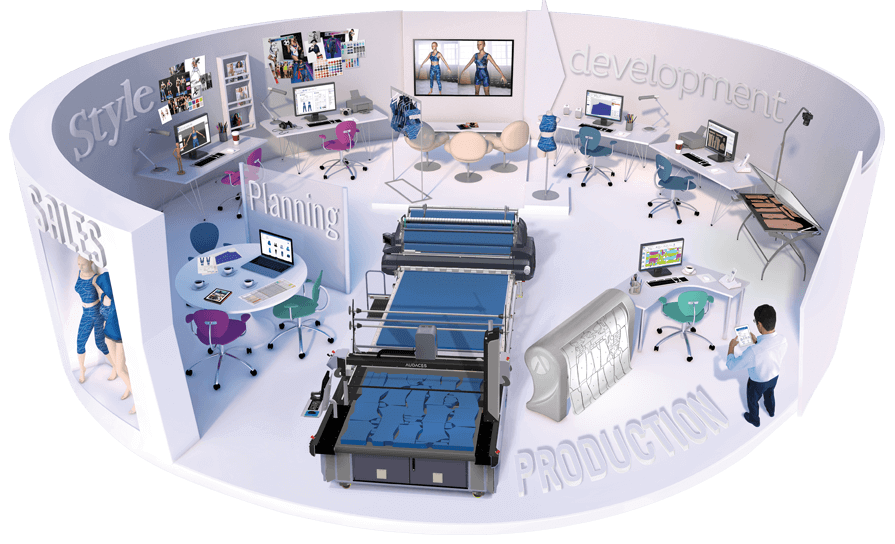Summary:
- Sustainable fashion jobs aim to promote greater sustainability in the fashion production chain;
- These careers encompass both new professions dedicated solely to sustainability and existing professions adapted to incorporate sustainable practices;
- Technology serves as a valuable ally in integrating sustainability into the fashion production chain. Experience the benefits of Audaces360 with a free trial today!

Pursuing a career in the fashion industry has long been a dream for many. However, in recent years, a new trend has emerged: the desire to work in the fashion sector with a specific focus on ethics and sustainability.
This growing trend has given rise to the concept of sustainable fashion careers, which encompass various professional paths dedicated to researching and promoting sustainability throughout the entire supply chain.
Whether you’re interested in a job in sustainable fashion or simply incorporating sustainable elements into your existing profession, we’ve got you covered.
Read on to discover the possibilities and opportunities in this field!
Sumário
What is the significance of sustainable fashion jobs in the market?

Sustainable fashion jobs hold immense importance in the market, particularly due to the urgent global need to address sustainability, especially within the fashion industry.
According to recent data from SMI (Sistema Moda Italia), clothing production alone is responsible for 20% of global water waste and 8.1% of greenhouse gas emissions in the atmosphere. This alarming statistic highlights the significant environmental impact of the fashion industry.
As a result, consumers and the general public are increasingly demanding that the fashion industry reduces its environmental footprint, eliminate exploitative and unethical practices in the supply chains, and ensure transparency regarding the environmental and social history of the materials used.
In response to these demands, an internal industry review becomes crucial, including a focus on professionalism.
Sustainable fashion careers are emerging to guide the sector towards a transformative change characterized by greater sustainability.
And it is highly likely that these careers will have an increasingly significant impact in the near future.
Which are sustainable fashion jobs?

When delving into the realm of sustainable fashion careers, a multitude of exciting opportunities emerge.
These careers encompass not only entirely new roles but also the transformation of existing positions to prioritize sustainability.
Let’s see some possibilities as we explore potential sustainable fashion careers below!
Fashion designer
A fashion designer takes on the responsibility of trend analysis, market research, and translating these insights into designs that prioritize sustainability and ethics.
Beyond sketching and technical drawings, a sustainable fashion designer actively seeks out sustainable and natural fabrics.
Ethical Trade/Sustainable Sourcing Manager
This role focuses on researching innovative and sustainable fabrics and materials.
Additionally, it involves establishing and maintaining positive and trustworthy relationships with suppliers to ensure their alignment with the company’s ethical values.
Product Innovation/Product Sustainability
This position is a crucial figure in the sustainable fashion supply chain as it involves collaborating and negotiating between various internal and external departments of the company.
The goal is to propose new, concrete, and organizational possibilities for creating sustainable products.
Typically, this role verifies that the entire supply chain adheres to ethical and sustainability standards while staying updated on international innovations and regulations.
Corporate Social Responsibility Manager
A Corporate Social Responsibility (CSR) Manager guides internal and external stakeholders in defining and implementing sustainability strategies. The aim is to minimize the company’s exposure to risks, reduce its environmental impact, and contribute to the economic and social development of the context.
This role also includes overseeing corporate responsibility programs that protect the rights of apparel workers and minimize the environmental impact of the brand’s supply chain.
Sustainability Manager
A Sustainability Manager is responsible for designing and implementing corporate programs that promote ethical practices in the industry, from sourcing to end-use.
These professionals are focused on the development, implementation, promotion, and monitoring of environmental strategies within an organization.
How to foster fashion sustainable jobs in the industry?

The universe of sustainable fashion jobs encompasses both entirely new professions and the integration of sustainability into existing roles.
If you’re already working in the fashion world and aspire to align your career with sustainability, consider the following tips.
Utilize sustainable raw materials
The first step in reducing the environmental impact of the textile industry revolves around selecting sustainable fabrics and other raw materials. The quality of these substances used in fabric production and processing has far-reaching implications.
This pertains not only to minimize environmental pollution during production but also to the well-being of the skin that comes into contact with these materials and the overall healthiness of garment disposal.
Professionals in the industry should prioritize the use of sustainable textile fibers, which typically possess the following characteristics:
- Pesticide-free;
- Manufactured using energy from renewable sources;
- Produced with a strong emphasis on reducing water consumption;
- Disposed of and produced without generating chemical waste;
- Dyed using environmentally friendly dyes that are free from carcinogenic and harmful substances, ensuring both skin and overall health safety.
Learn more: How to master sustainable creation and production in the eco-fashion era
Minimize fabric and raw material waste
Once sustainable raw materials have been chosen, it becomes crucial to ensure minimal waste throughout the production process.
Our advice is to meticulously assess each stage of the process and identify areas where waste and inefficiencies can be improved.
Starting from pattern creation, through prototyping, to defecting, placement, and cutting, every phase can be optimized for efficient utilization of raw materials.
Even small adjustments in each step can have a significant impact on waste reduction, particularly in large-scale production.
Therefore, staying up to date with the latest innovations and advancements is an essential task for those pursuing a sustainable fashion career.
By keeping informed, professionals can implement new techniques and practices that enhance material efficiency, leading to substantial waste reduction in the industry.
Learn more: Find out how fast fashion and sustainability can coexist in the apparel industry
Obtain sustainability certifications
While improving processes is crucial, it is equally important to obtain sustainability certifications to give meaning to your efforts and effectively communicate your commitment to customers.
Certifications serve as a guarantee and validation of a company’s environmental and social performance, ensuring compliance with specific standards and requirements.
They enhance credibility in the eyes of customers, improve brand reputation, facilitate access to “green” financing and tax incentives, and encourage informed purchasing decisions.
Environmental certifications are increasingly being mandated by regulations in the fashion industry, allowing interested companies to embark on sustainable paths.
The influence of environmental certifications is significant, with the Fashion Revolution Consumer Survey 2020 revealing that 80% of consumers consider sustainability certifications important.
Some prominent environmental sustainability certifications include:
- ISO 14001: An international standard for environmental management systems;
- FSC/PEFC for the fashion industry;
- Product carbon footprint: Measures and communicates the greenhouse gas emissions associated with a product’s lifecycle;
- Life Cycle Assessment (LCA): Evaluates the environmental impacts of a product throughout its entire life cycle;
- Product water footprint: Measures the amount of water used throughout the production and supply chain of a product.
Learn more: Why consider sustainable consumption and production for your company?
Embrace technological advancements
Technological innovations have brought forth tools that significantly impact the sustainability of fashion processes, especially in logistics and production advancements.
Investing in technology enables improved communication among teams, facilitates data gathering and sharing, and standardizes processes, eliminating inefficiencies and the need for rework, which ultimately leads to waste reduction.
Moreover, technology now allows for the digitization of the entire creative and modeling process, eliminating the need for paper patterns, minimizing material waste, and enabling digital visualization of models without physical samples.
By leveraging technology, professionals in sustainable fashion careers gain complete control over the supply chain and its environmental impact. It serves as a powerful ally in enhancing sustainability practices and driving positive change in the industry.
Make you fashion career more sustainable with Audaces solutions
At Audaces, we prioritize sustainability as one of our primary objectives. Our cutting-edge technologies are specifically designed to streamline and enhance the operational efficiency of fashion companies while simultaneously reducing their environmental footprint.
One key aspect of our solutions is the optimization of fabric utilization. By implementing our advanced tools, you can minimize fabric waste and maximize resource efficiency throughout the production process.
Additionally, our solutions promote more controlled procedures and facilitate seamless communication between different departments within your organization.
Audaces360

Audaces360 is a comprehensive platform designed to reduce costs and accelerate processes while promoting sustainability throughout the entire production cycle.
With our multi-solution, you can significantly reduce waste during the garment design phase. Audaces Fashion Studio enables you to develop models directly on the computer, while Audaces 3D allows you to sew and simulate them with utmost realism.
Another essential tool within the Audaces360 platform is Audaces Marker. This feature automates the marker-making process, resulting in up to 13% fabric savings compared to manual markers. By optimizing material usage, you can effectively contribute to a more sustainable approach to production.
Additionally, our platform enables real-time management of the entire creation and production process, even remotely, through Audaces Isa. Integration of the technical data sheet and automatic pre-cost calculation with Audaces Idea maximizes efficiency while reducing errors and rework.
Join us on our mission to make fashion processes more sustainable. By incorporating Audaces360 into your workflow, you can pave the way for a more environmentally conscious and profitable future in the industry!
If you are interested in exploring this subject further, we offer exclusive content that highlights the key trends shaping the future of the fashion industry, with a particular focus on sustainability as a top priority. Download our free e-book now:
FAQ
Sustainable fashion jobs encompass various professional paths that are focused on promoting greater sustainability throughout the fashion production chain.
You can make your career in the fashion world more sustainable by adopting practices such as using sustainable raw materials, reducing fabric and raw material waste, obtaining sustainability certifications, and investing in technology.
Technology plays a crucial role in sustainable research by optimizing fabric usage, reducing waste, and improving communication and organization of processes. By leveraging technology, rework and inefficiencies can be minimized, leading to more sustainable and efficient practices.






